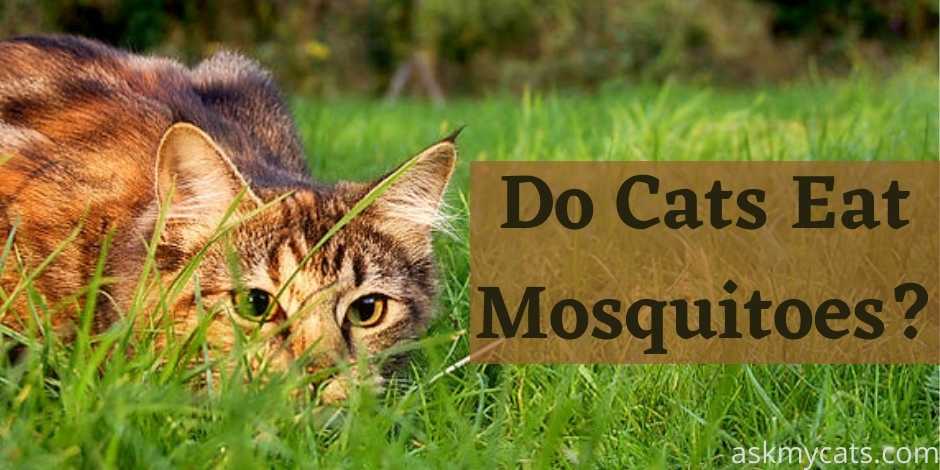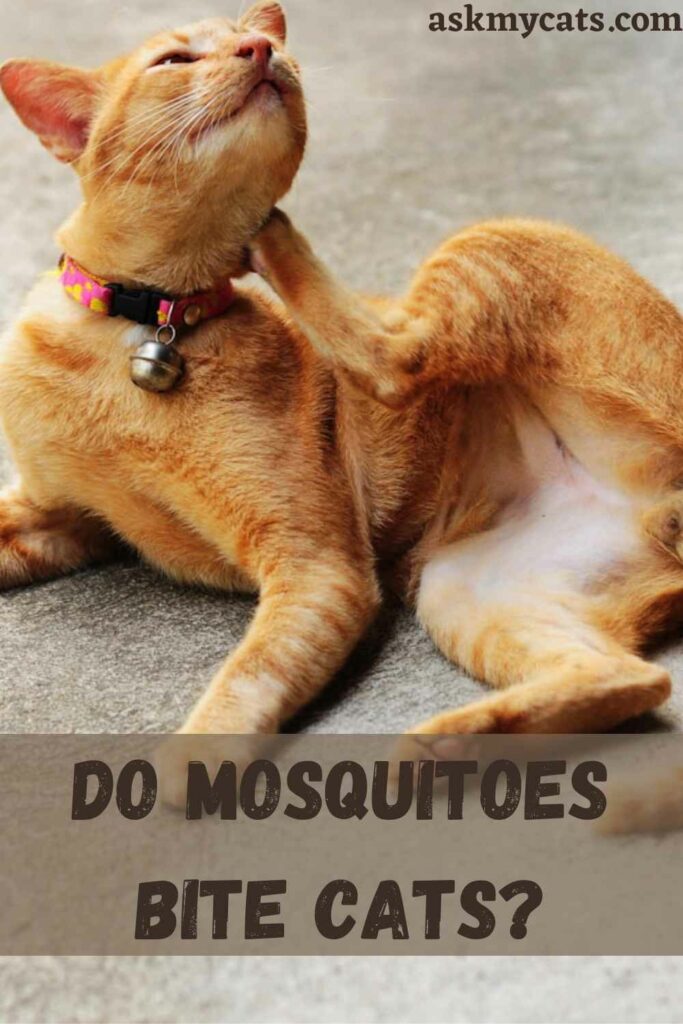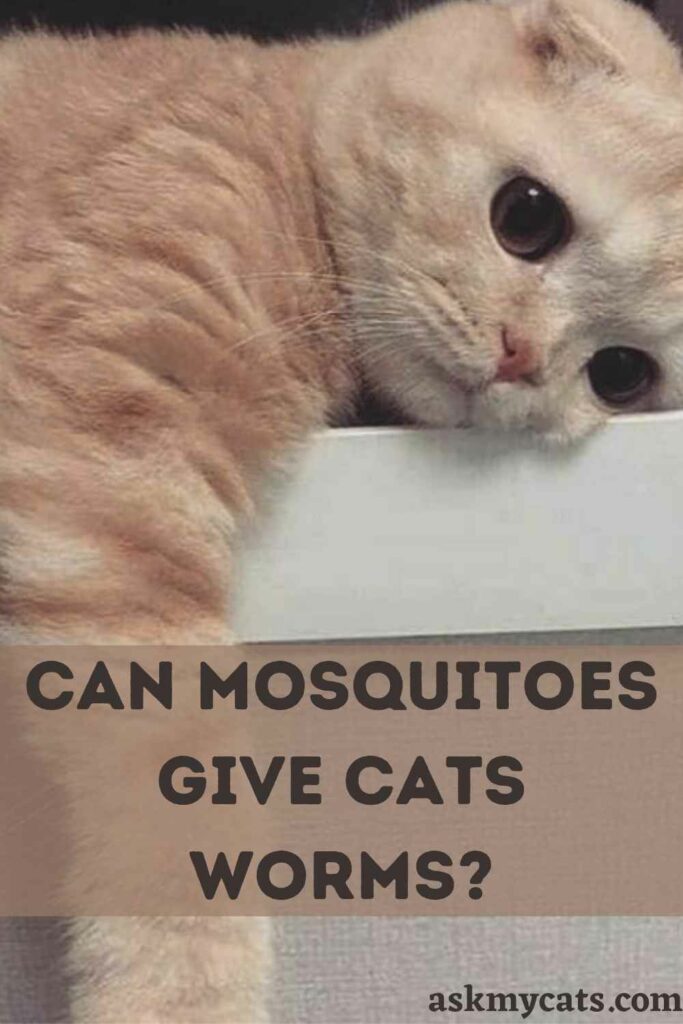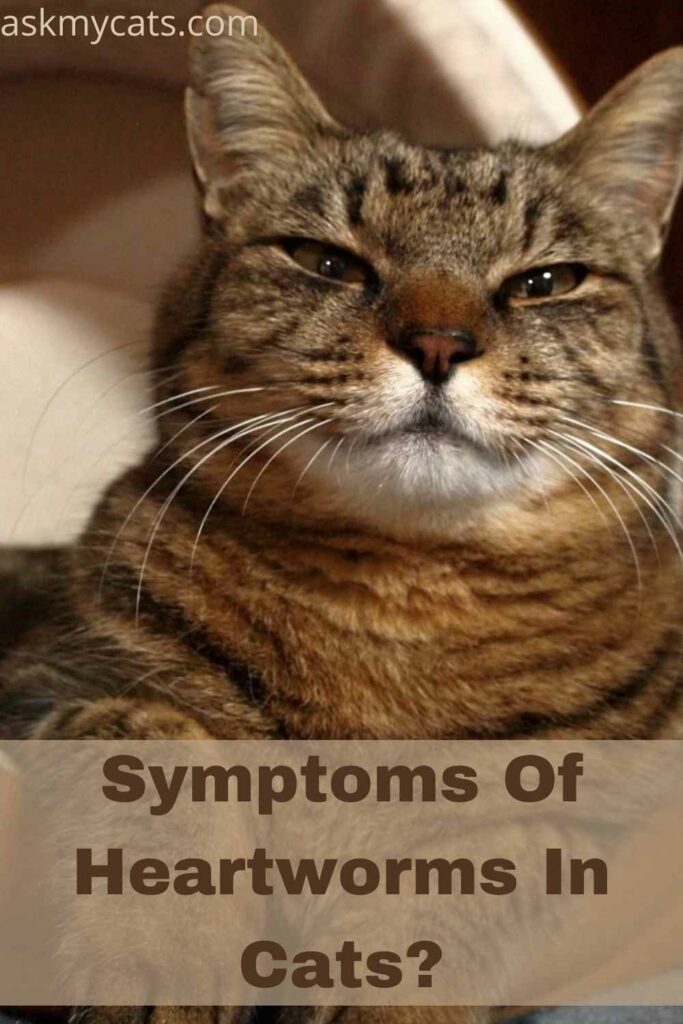Cats are hunters by nature. Even the most sedentary household cats will find it difficult to avoid chasing insects on occasions. Mosquitoes are well-known for carrying diseases that are hazardous to humans.
If you witness your cat eating one, you have every right to be concerned, and it’s not a pleasant sight as well. So, do cats eat mosquitoes?
The answer to the question “do cats eat mosquitoes” is yes or no. This may seem self-evident, but it all depends on your cat. Cats are pretty skilled at determining what is safe to eat, what should be consumed, and what should be avoided. It’s a significant element of their inherent survival instincts that keeps them safe in the wild.
This article will help to understand that are mosquitoes harmful to cats and can they get worms from them.


Give Your Cat the Perfect Day
Get the Free Ebook!
Can Cats Catch Mosquitoes?
Yes, cats are natural-born hunters and, on occasions, capable of catching mosquitoes.
There are, however, two problems with cats eating mosquitoes. One is that some domestic cats don’t know better and will eat things that are harmful to them. Not many cats will do this, but some will.
The other problem is that cats will often eat insects almost accidentally. By this I mean, they aren’t taking the time to think about their actions.
They will eat a mosquito, fly, or some other flying insect while trying to play with it after they’ve caught it if it tries to fly away.
You may have noticed your cat playing with the prey they’ve caught with their mouths. Many would have seen winged insects getting caught in your cats’ mouths before, and they’ve tried to shake them off but just ate them.
Do Cats Kill Mosquitoes?
Yes, cats can kill mosquitoes while being playful or by trying to catch them out of curiosity.
If a cat is in a playful mood, it is possible that it will try to eat a mosquito. Before eating mosquitoes, cats can try to play with them, just as they would with a spider or any other creature.
Mosquitoes do not provide sustenance to cats, who will always prefer their cat food.
Female mosquitoes, on the other hand, will try to bite cats. A universe turned on its head! In the blink of an eye, the predator transforms into the prey.
On the other hand, a mosquito bite will almost definitely not kill or injure your cat unless the mosquito is carrying a dangerous disease.
Because of the risk of bite-transmitted diseases, it’s critical to get rid of as many of these insects as possible from your neighborhood.
Is It Ok For A Cat To Eat A Mosquito?
Yes, cats can eat mosquitoes as it is mostly harmless to them unless it is carrying a deadly disease with it.
Although mosquitos can transmit diseases to humans and animals, your cat will not be harmed if he eats them. A disease can be transmitted via a mosquito bite.
Mosquito-borne infections will be rendered harmless by the digestive process in the stomach.
Do Mosquitoes Bite Cats?
Yes, mosquitoes can bite cats despite of cats having thick fur.

Mosquitoes are fully capable of biting cats despite their layers of fur. This is due to the fact that mosquitos bite using a technique known as probing.
The mosquito wiggles its way into a cat’s skin, biting them in sensitive areas like the ears and nose.
Insect repellent is recommended to protect cats from mosquito bites.
Despite the fact that mosquitoes will occasionally bite cats, most cats are fully capable of defending themselves against undesirable insects.
Once the sun sets and the evening bugs come out to play, you don’t have to keep your cats inside.
The most you can do is protect your cat with a natural or organic cat bug spray in the evenings during the summer.
Because mosquito bites are most common on the nose and ears, a cat may easily defend itself when it hears a buzzing sound nearby.
The hair layers will protect the thicker fur on the cat’s back and the tail in most cases. As a result, their chances of being bitten are reasonable but lower than that of a human.
How To Protect Cats From Mosquito Bites?
Ways to protect cats from mosquito bites are:-
- Use insect repellents made from natural ingredients, such as shampoos for cats.
- Remove any water that has accumulated: Have a little backyard with no water puddles.
- Avoid mosquito bites at peak hours: Allow your cat to come inside after the sun sets or at night.
- Mosquitoes should be kept outside: Magnetic screen doors can keep mosquitos out of your home.
While cats are naturally inclined to brush and lick themselves, they are unable to avoid being bitten by insects, especially those that are close to their faces.
Bite-prone areas include the nose and ears, which are precisely the areas where cat claws should not scratch excessively.
Using a specific cat cone like this is recommended to protect an already bitten cat (in the face or ears) from excessive scratching.
Fortunately, most cats enjoy playing with buzzing insects, and their susceptible body parts will discover one fast. As a result, the chances of a bite are reduced.
If mosquitoes are found, cats will usually chase and kill them, especially if they are moving around indoors. Don’t worry if they consume one; it’s only a little protein boost for them.
Using a natural repellant will go a long way toward helping them out. Let’s take a brief look at the most cost-effective product selections.
Can Mosquitoes Give Cats Worms?
Yes, mosquitoes can give cats worms; the most well-known is heartworms.

Mosquito bites affect cats in the same way they do humans
. Mosquitoes can transmit diseases specific to pets, such as heartworms.
However, typical repellents for people should not be used on cats. Many common insect repellents are hazardous to cats.
Mosquito bites affect cats in the same way they do humans. The majority of a cat’s body is protected from mosquitoes due to its fur.
However, mosquito bites are still a threat to the sections of their bodies that are exposed.
Mosquito bites are more common on the cat’s nose and ears, which are the most exposed parts of the body.
Pets are more prone to mosquito bites than their human companions since they spend more time outside.
As a result, understanding the dangers of mosquito bites on cats and how to avoid them is critical.
Mosquitoes have been found to carry a variety of illnesses and viruses. In the United States, the West Nile virus is the most serious mosquito-borne disease.
However, West Nile virus infection in cats is quite rare. Heartworm infection is the major threat to cats from mosquito bites.
Heartworm disease is caused by worms that are about a foot long and dwell in the heart, lungs, and blood vessels. It can cause catastrophic organ damage, severe lung disease, and even heart failure in cats.
The worms are most commonly found in cats. Heartworms are naturally found in cats. That means the worms can fully mature in a cat, reaching a length of 12 inches and cause serious health problems.
Even the young heartworms, which are smaller, can cause serious medical symptoms and even death.
What Causes Heartworms To Spread?
Heartworms are mainly spread by mosquitoes. In addition to cats, many wild animals can host heartworms.
Heartworms mainly spread through mosquitoes. Many wild animals can host heartworms in addition to cats. Wolves, foxes, coyotes and sea lions are among those.
These wild creatures reside in the immediate vicinity of households in many urban and suburban regions.
When these wild animals exist in the immediate vicinity, mosquitoes can readily carry wild and untreated animals to their homes.
Mosquitoes spread heartworms when they feed off of an infected animal and then bite a new host. Adult heartworms in wildlife create bloodstream microscopic offspring.
These small young worms, termed microfilaria, are collected by mosquitoes when taken with heartworms in the blood of an animal.
When the infant worms are in the mosquito, 10 to 14 days are required for the infectious stage to grow. The worms can then be transplanted to a different host once they reach this stage.
When the infectious heartworms of a mosquito land on the new host and start feeding, the baby worms are deposited on the new host’s skin.
The little wound left by the biting insect enters the bloodstream from there. Once a cat has reached its full size, the worm takes around six months to ripen.
This retarded reaction might cause a pet to be repeatedly exposed to heartworms without first presenting any symptoms. The heartworms are increasing in concentration and are difficult to treat.
Symptoms Of Heartworms In Cats?
Symptoms of heartworms in cats include lack of appetite, weight loss, coughing, asthma-like attacks, and periodic vomiting.

Cats are regarded as atypical heartworm hosts. The heartworms do not develop in the cat until maturity.
However, the cat may still have symptoms from smaller untimely heartworms.
Feebleness, weight loss, coughing, asthma-like attacks and regular vomiting may be fewer severe symptoms.
More acute symptoms may include walking, decay, convulsions or a relaxed abdomen due to fluid build-up in the abdominal tract.
Sadly, unexpected collapse or even sudden death is the first indicator of infection in many instances.
Avoiding mosquito bites is the greatest method to avoid heartworms.
But what is the greatest protection for your animals against mosquito bites, because cats spend more time increasingly outdoors while the mosquito season progresses.
First and foremost, don’t use DEET or any other human repellent. Many of these can be poisonous to animals. Use specifically made bug repellents for your pet, instead.
Many treatments for ticks and fleas also repel mosquitoes. Check for insect treatments that include mosquito repellant with your veterinarian or local animal shop.
The next best defence against mosquito bites is to avoid mosquito-infested regions. For mosquitoes, try to walk your dog during non-peak hours. Avoid regions with a lot of long grass or marshy areas.
Check for standing water in your yard, which is a favoured mosquito breeding area. You can limit the possibility of mosquitoes using your garden’s water features to deposit their eggs if you have them.
Installing a fountain will prevent stagnation in your pond or other water feature. Mosquitoes prefer to lay their eggs in stagnant water. In your pond, you can also keep goldfish or koi.
These fish are not only attractive, but they also consume mosquitoes and mosquito larvae.
Frequently Asked Questions
Can cats be allergic to mosquito bites?
Ans. Mosquito bite hypersensitivity in cats is a physically unique allergic skin condition caused by a mosquito bite. The feline will develop a crusted, ulcerated dermatitis reaction confined to the nose or pinnae as a result of this rather uncommon skin ailment (ear tip).
How do I keep mosquitoes from biting my cats ears?
Ans. Controlling mosquitoes Use an antiseptic lotion, such as Dermaclens Cream or Filta-Bac sunscreen, to treat your cat’s bites on the ears and nose (contains an antiseptic as well as a sunscreen). If the bites appear to be infected, your veterinarian can prescribe an antibiotic lotion.
Can cats get sick from eating mosquitoes?
Ans. Although mosquitos can transmit diseases to humans and animals, your cat will not be harmed if they eat them. Mosquito-borne infections will be rendered harmless by the digestive process in the stomach.
Final Words
Cats can consume a variety of insects and bugs, including mosquitoes, but keep in mind that not all bugs and insects are alike.
Before allowing your kitty to eat anything little and wander around, try to get as much information as you can. If you notice any troubling signs or unusual behaviour, contact your local veterinarian right away.
If you’re certain these are poisoning symptoms, call the poison hotline as well.
In conclusion, try to keep the interaction between the cat and the mosquito to a minimum whenever feasible. However, there isn’t much to be concerned about for the most part.
